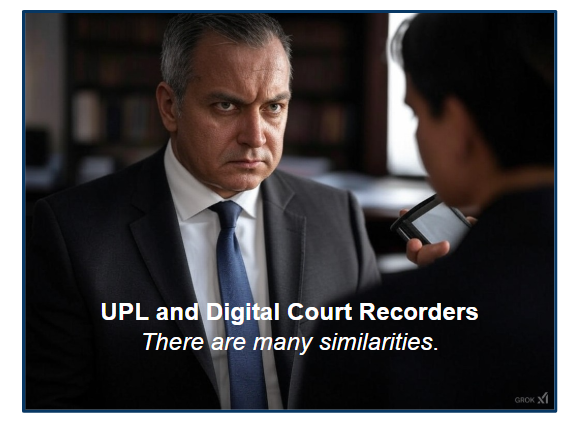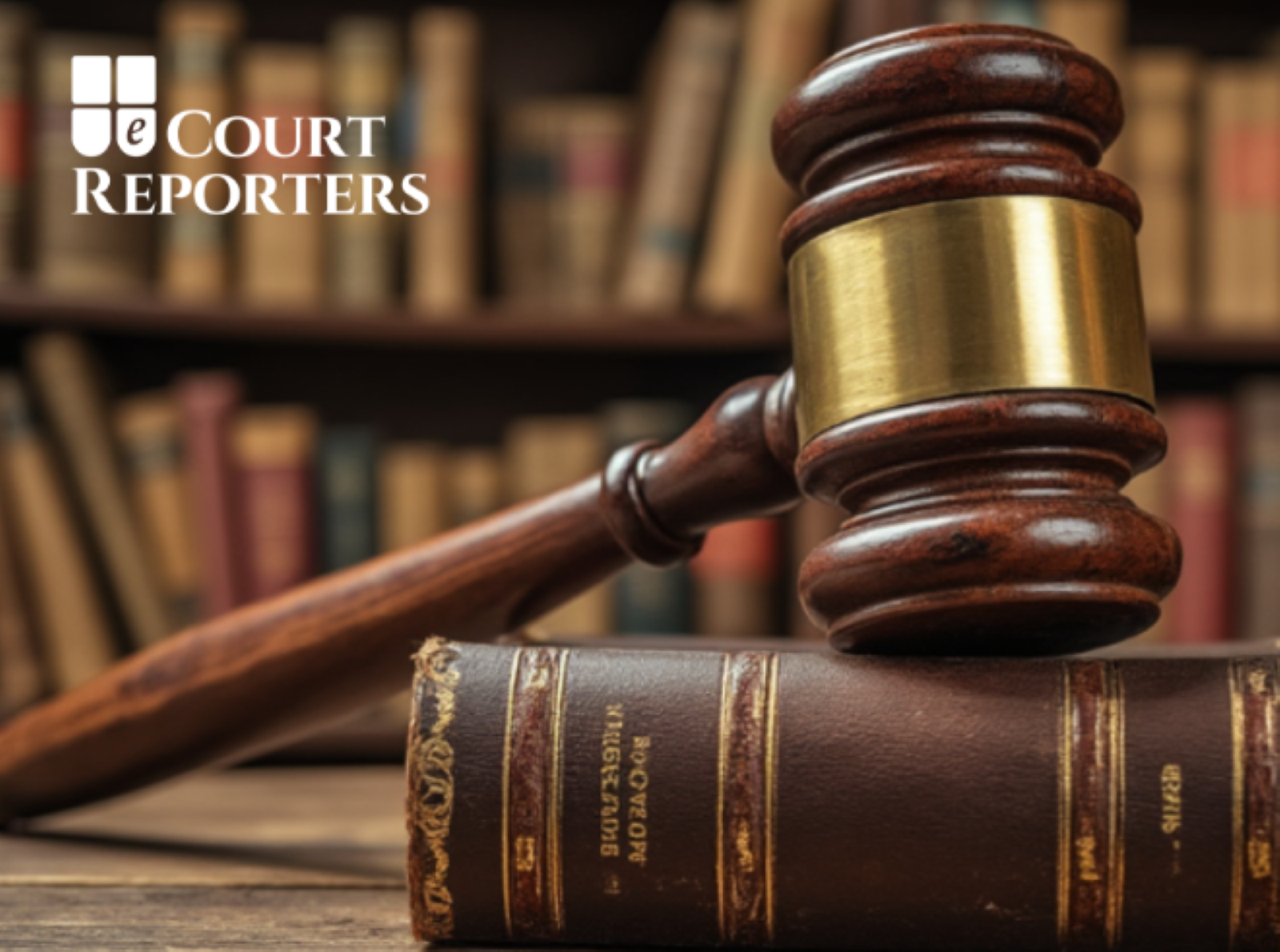Confusion in techniques of having a proceeding taken down and transcribed verbatim is looming in the legal industry. Attorneys order a court reporter but are being sent a court recorder.
Isn’t it the same? At the end of the day, there is a transcript, right? Let’s break it down:
Stenographic or voice writing court reporters are professional in-person service providers that certify a final transcript.
Court recorders digitally record the proceeding, either in person or remotely, and then send the recording to a transcriptionist for a final transcript.
Think it still sounds the same? Let’s dig further:
Courtrooms in many states have installed equipment for recording trials. Each speaker has a microphone to speak into. Outside noise can be reduced for clarity. This method is sufficient when everything goes smoothly: however, courtrooms across the country have reversed the decision of implementing digital recording. Cases of recording failures have proven costly for attorneys and their clients causing trials to be tried again.
Pre-trial court proceedings are held in many places beyond the courtroom. Depositions are held in doctors’ offices, conference rooms, and law firm offices years before the final stage of the trial takes place. After all, attorneys need to do their due diligence to know and prepare for the best representation of their client.
In out-of-court proceedings, individual microphones and recording equipment is limited. Recording such events can leave final transcripts filled with “inaudible” or “undiscernible” notations due to a multitude of interferences. Anything from paper shuffling, a door slamming, fans from air ducts, and even a simple cough or sneeze can block the sound of spoken words of important testimony leaving gaps in the final printed form. So, what does that mean for the attorney? It means attorneys now must fight their case with questionable transcripts.
In the same above-stated out-of-court proceedings, certified live court reporters manage the environment and ensure that, should an interruption occur, the situation can be rectified immediately. Having a court reporter taking down verbatim testimony provides attorneys with complete, clear transcripts.
So, now we’ve reached the big difference between court reporters and court recorders. Peoples’ lives are at stake when it comes to litigation. Attorneys cannot take a chance on recording failures or gaps in transcripts. It’s not just the cost of litigation in general, but the outcome of a trial that affects plaintiffs and defendants for years and maybe even for the rest of their life. Every person or company that finds themselves in the unfortunate world of litigation must understand and, quite frankly, demand a live court REPORTER for every step of the process.
How do attorneys guarantee a live court reporter for each proceeding? Schedule the court reporter direct, know and understand the qualifications and skill of the service provider, and just as important, know the prices upfront before you book! Selection of specific court reporters can be found at www.ecourtreporters.com.



